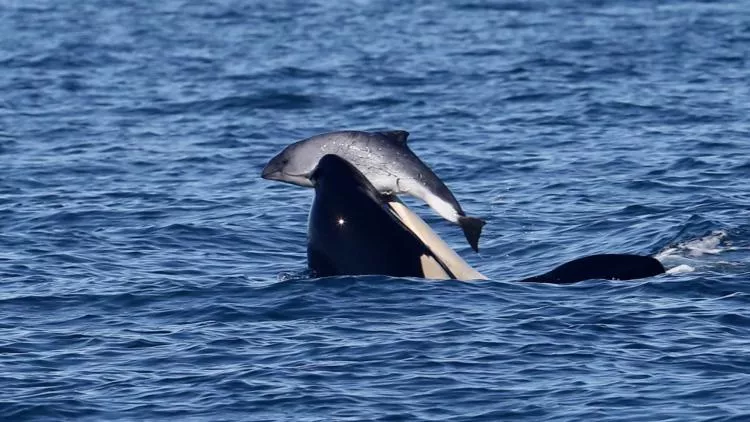Why are orcas killing porpoises?
Despite being primarily fish-eaters, orcas have been observed harassing and even killing porpoises without consuming them. Recent studies shed light on this enigmatic behaviour, offering several hypotheses.
A comprehensive study published in the journal Marine Mammal Science analysed over 60 years of recorded interactions between Southern Resident killer whales (SRKW) and porpoises in the Salish Sea. This endangered population of orcas, known for their fish-based diet, particularly Chinook salmon, has been involved in numerous incidents of porpoise harassment, leading to the deaths of many porpoises.
Possible explanations
The study proposes three main reasons for this behaviour:
1. Social play: Orcas are highly intelligent and social creatures known for their playful nature. The interactions with porpoises, including carrying them on their backs and passing them amongst themselves, could be a form of social play. This behaviour continues even after the porpoise’s death, suggesting that killing might not be the primary goal.
2. Hunting practice: The harassment could serve as practice for hunting skills, especially for younger orcas. Porpoises, being fast and agile, might provide a moving target for the orcas to hone their hunting abilities, despite not being their typical prey.
3. Mismothering behaviour: Another intriguing hypothesis is that the orcas might be attempting to care for the porpoises, mistaking them for their young. This behaviour, known as mismothering or displaced epimeletic (relating to altruistic behaviour in which a healthy animal cares for an injured, ill or dead individual — ed.) behaviour, could stem from the orcas’ limited opportunities to care for their young, as nearly 70 percent of SRKW pregnancies result in miscarriages or early calf mortality.
Cultural aspects
The study also highlights the cultural differences within orca populations. While the SRKW population primarily consumes fish, other orca ecotypes feed on marine mammals. This dietary specialisation is deeply ingrained in their culture, influencing their interactions with other marine species.
The reasons behind orcas’ aggression towards porpoises remain partially speculative, but the insights from recent research provide a deeper understanding of orca behaviour and ecology.
Understanding these interactions is crucial for the conservation of both orcas and porpoises. The decline in salmon populations, a primary food source for the SRKW, underscores the need for effective conservation strategies. The study emphasises the complexity of orca behaviour and the importance of preserving their natural habitat and food sources.



























